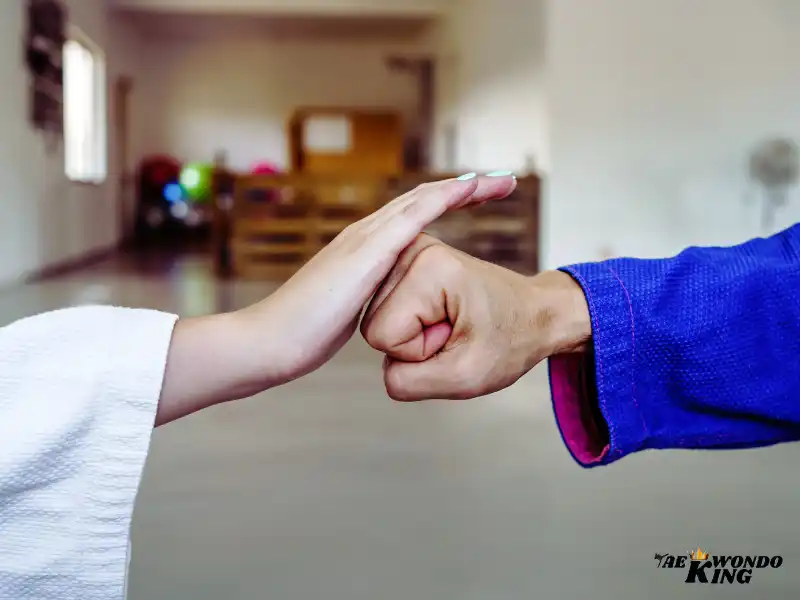
Martial arts have long captivated practitioners and enthusiasts with their diverse range of techniques, philosophies, and benefits. Brazilian Jiu-Jitsu, often referred to as BJJ is a prime example of martial art that has gained global recognition for its unique approach to combat, self-defense, and personal development. In this article, we delve into the world of Brazilian Jiu-Jitsu, exploring its origins, core principles, training methods, and the numerous advantages it offers to both seasoned martial artists and newcomers alike.
Martial arts have long been celebrated for their diverse range of styles, techniques, and philosophies that empower practitioners both physically and mentally. Karate, a striking art form originating in Okinawa, Japan, is undoubtedly one of the most recognized and practiced martial arts worldwide. However, there are several other martial arts that offer distinct benefits and unique attributes.
In this article, we will delve into Brazilian Jiu-Jitsu (BJJ), exploring how it sets itself apart and presents a compelling alternative for those seeking a well-rounded martial arts experience. While both Karate and BJJ have their merits, we will uncover what makes BJJ a worthy contender when it comes to personal growth, self-defense, and overall martial arts excellence.
Origins and Evolution
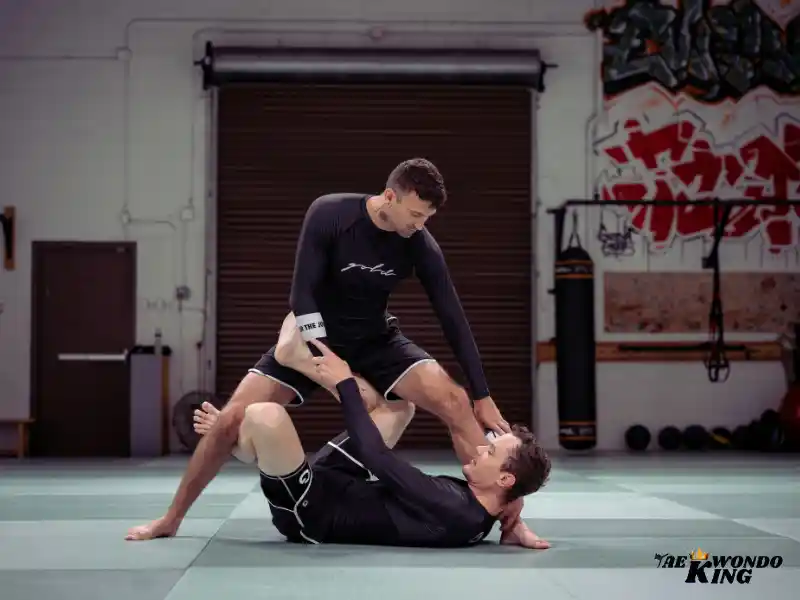
Rooted in the grappling techniques of Judo and traditional Japanese Jiu-Jitsu, Brazilian Jiu-Jitsu emerged in the early 20th century in Brazil. The Gracie family, particularly Helio and Carlos Gracie, played a pivotal role in refining and popularizing this martial art. BJJ diverged from its Japanese predecessor by focusing on ground fighting, submission holds, and leveraging technique and leverage to overcome larger and stronger opponents.
Brazilian Jiu-Jitsu, commonly referred to as BJJ traces its roots to the early 20th century when it was developed by the Gracie family in Brazil. Unlike Karate, which emphasizes striking techniques, BJJ focuses primarily on ground fighting and grappling. The art was refined through real-world combat experience and has since gained international recognition as a highly effective self-defense system and a competitive sport.
Brazilian Jiu-Jitsu Fundamental Principles, Progression, and Ranking
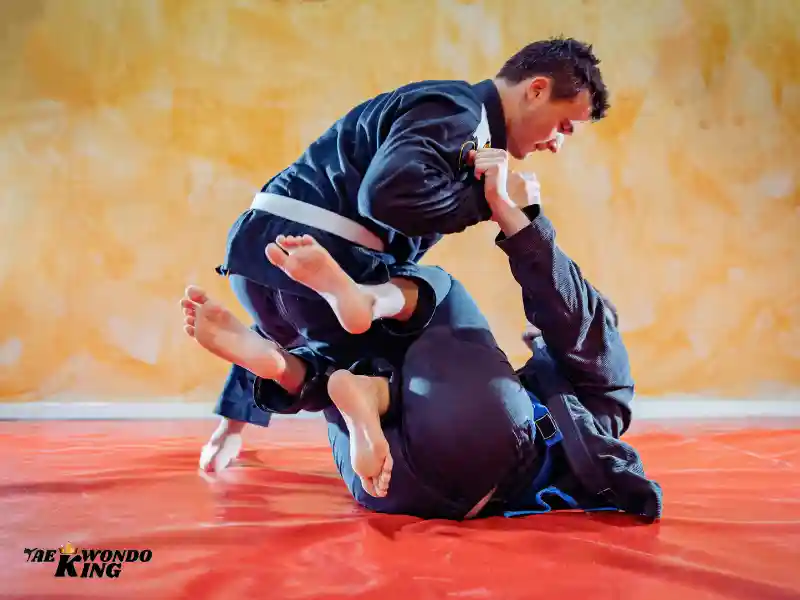
At the heart of Brazilian Jiu-Jitsu lies a set of fundamental principles that guide practitioners in their approach to combat. Unlike many other martial arts that rely heavily on striking techniques, BJJ prioritizes control, positional dominance, and submissions. The essence of BJJ is to neutralize an opponent’s strength and aggression through precise technique, body mechanics, and strategic thinking.
Brazilian Jiu-Jitsu employs a belt-ranking system to signify a practitioner’s level of expertise and experience. The journey from a white belt, representing a beginner, to a black belt, signifying a high level of proficiency, is a testament to the dedication and commitment required to master this art.
The belt ranking system in BJJ is not only an indicator of technical prowess but also a reflection of personal growth, discipline, and understanding of the art’s principles. Achieving higher belts in BJJ is a transformative journey that extends beyond the mat, shaping an individual’s character and mindset.
Grappling and Ground-Fighting
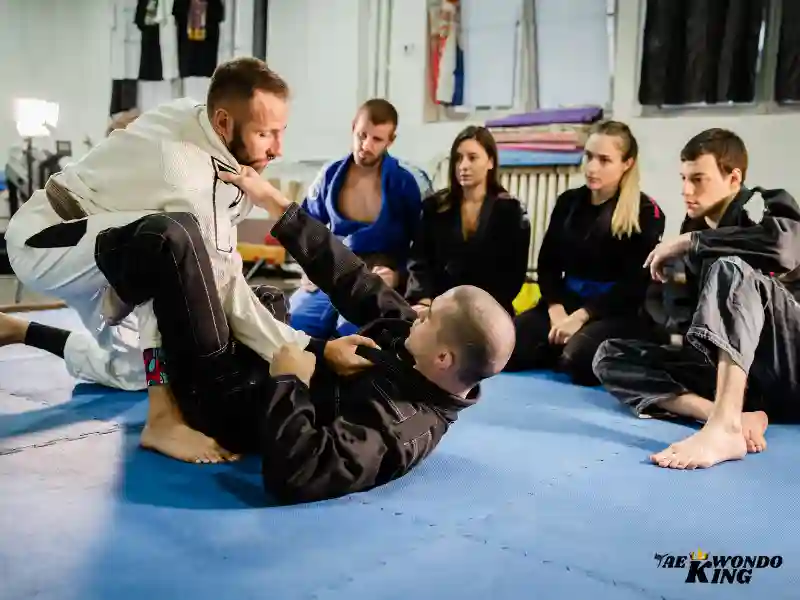
Central to Brazilian Jiu-Jitsu is the art of grappling, which involves manipulating an opponent’s body position, balance, and movement. BJJ practitioners engage in ground fighting scenarios where they strive for dominant positions, such as mount, side control, and back control. From these positions, practitioners can execute a variety of joint locks and chokeholds to submit their opponents.
Grappling techniques in BJJ emphasize utilizing an opponent’s force and momentum against them, making it a martial art that caters to individuals of varying sizes and physical strengths. This emphasis on leverage and technique empowers practitioners to overcome physical disadvantages and focus on skill development.
Brazilian Jiu-Jitsu Training Methodology
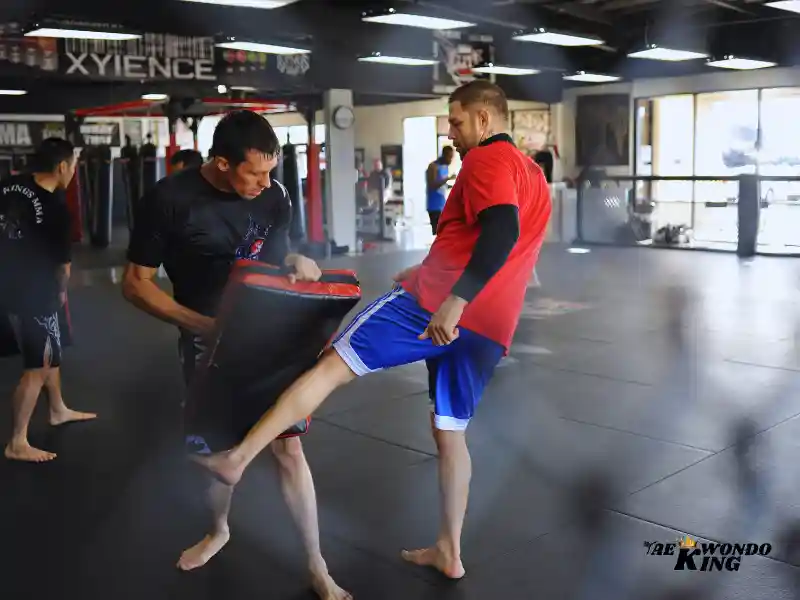
Training in Brazilian Jiu-Jitsu encompasses a diverse range of activities designed to enhance physical fitness, technical proficiency, and mental acuity. BJJ practitioners engage in live sparring sessions known as “rolling,” where they apply techniques against resisting opponents. This dynamic training approach fosters adaptability, problem-solving, and the ability to think strategically under pressure.
Drilling specific techniques and sequences is another crucial aspect of BJJ training. Repetition allows practitioners to internalize movements and transitions, enabling them to execute techniques seamlessly during live sparring. Additionally, practitioners often engage in strength and conditioning exercises to improve their overall physical fitness and endurance.
Mind and Body Connection
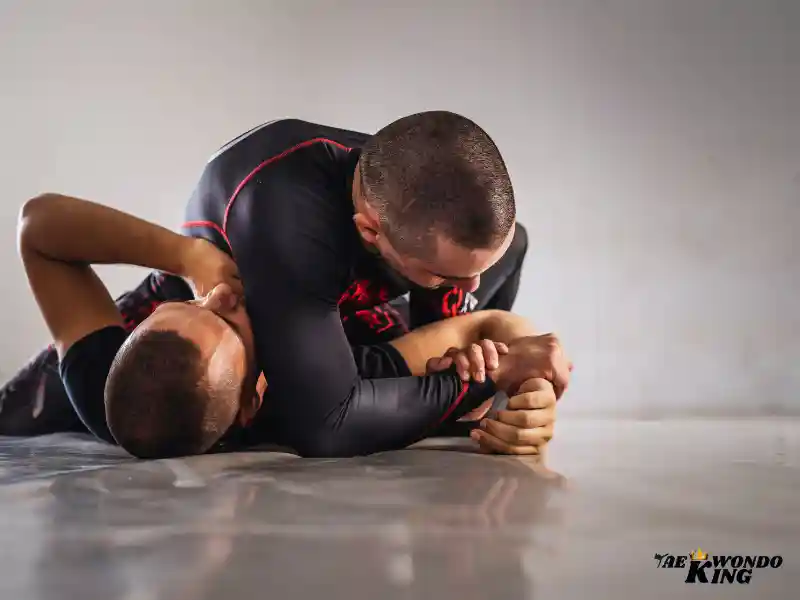
One of the standout features of Brazilian Jiu-Jitsu is its emphasis on the mind-body connection. BJJ requires practitioners to remain present, focused, and attentive to minute details during training and sparring. The art encourages a state of mindfulness that not only enhances technical execution but also promotes mental clarity and stress relief.
Brazilian Jiu-Jitsu instills a sense of humility and respect in practitioners. The practice of tapping out or submitting during sparring teaches individuals to acknowledge their limitations, prioritize safety, and embrace the learning process. This humility extends beyond the mat, fostering a respectful and supportive community of practitioners.
Beyond the physical benefits, Brazilian Jiu-Jitsu offers a unique mental framework that distinguishes it from Karate. BJJ places a strong emphasis on problem-solving, adaptability, and patience. Practitioners often find themselves in intricate positions where they must think several steps ahead to anticipate their opponent’s moves. This emphasis on strategic thinking fosters mental agility and a keen awareness of one’s surroundings.
Brazilian Jiu-Jitsu Self-Defense and Real-World Application
While Brazilian Jiu-Jitsu is a sport and an art form, it is also renowned for its practical self-defense applications. BJJ techniques empower individuals to defend themselves effectively in real-world situations, particularly when encounters end up on the ground. The art’s focus on control, leverage, and submissions enables practitioners to neutralize threats without resorting to excessive force. BJJ’s effectiveness in self-defense scenarios lies in its adaptability and scalability. Techniques can be adjusted to suit various situations, making it a valuable skill set for individuals seeking practical self-defense skills that prioritize minimizing harm while achieving control.
While both Karate and Brazilian Jiu-Jitsu offer self-defense skills, BJJ’s approach stands out due to its focus on real-world scenarios and practical application. BJJ techniques are designed to work regardless of size or strength differences between opponents, making it an ideal choice for self-defense in situations where physical disadvantages may come into play. The art’s emphasis on ground fighting is particularly relevant in self-defense scenarios, as many altercations end up on the ground.
BJJ’s self-defense effectiveness lies in its ability to neutralize threats through control and submissions, allowing practitioners to immobilize opponents without causing excessive harm. This aligns with the philosophy of using force only as a last resort, making BJJ a more well-rounded option for individuals seeking self-defense skills that prioritize de-escalation and control.
Brazilian Jiu-Jitsu Competitive Arena
Brazilian Jiu-Jitsu boasts a vibrant competitive scene, with tournaments held at local, national, and international levels. BJJ competitions provide practitioners with the opportunity to showcase their skills, test their abilities against opponents of similar ranks, and gauge their progress. The competitive aspect of BJJ adds a layer of excitement and motivation to training, driving practitioners to refine their techniques and expand their repertoire.
How to achieve a black belt in Brazilian Jiu-Jitsu?
To achieve a black belt in Brazilian Jiu-Jitsu, you must first find a reputable BJJ academy or instructor. Regular and consistent training is essential, as it takes many years of dedicated practice to advance through the belt ranks. Attending classes, learning and practicing techniques, sparring with training partners, and participating in competitions to assess your skills are all important. Additionally, maintaining a healthy lifestyle, proper nutrition, and conditioning exercises can help enhance your performance and progress in the art. The journey to a black belt is a lengthy one, requiring patience, perseverance, and a genuine passion for the sport.
How to achieve success in Brazilian Jiu-Jitsu competitions?
To achieve success in Brazilian Jiu-Jitsu competitions, here are some tips:
1. Train consistently: Make sure to regularly attend classes and train with dedicated partners to improve your skills and techniques.
2. Focus on fundamentals: It is important to master the basic techniques and positions before moving on to more complex ones. Solid fundamentals are crucial for success in competitions.
3. Develop a strong base: Work on your strength, conditioning, and flexibility to enhance your overall performance and prevent injuries.
4. Study and strategize: Watch high-level matches, study different techniques, and analyze your opponents’ strengths and weaknesses. Develop a game plan for each competition.
5. Spar and compete regularly: Test your skills by participating in regular sparring sessions and local competitions. This will help build your confidence and adaptability in a competitive environment.
6. Learn from losses: Do not get discouraged by losses. Use them as learning opportunities to identify areas for improvement and refine your techniques.
7. Focus on mental preparation: Develop mental resilience, focus, and confidence. Stay calm and composed during matches, and visualize success.
8. Seek guidance from experienced coaches: Work with experienced coaches who can provide guidance, correct your mistakes, and help you develop effective strategies.
9. Stay disciplined and committed: Success in Brazilian Jiu-Jitsu competitions requires dedication, discipline, and perseverance. Stay committed to your training and continuously strive for improvement.
10. Enjoy the journey: Remember to have fun and enjoy the process. Embrace the challenges and setbacks as part of your growth as a competitor.
How to achieve balance in Brazilian Jiu-Jitsu training and other commitments?
Achieving balance in Brazilian Jiu-Jitsu training and other commitments can be challenging, but here are a few tips to help:
1. Prioritize and schedule: Determine your most important commitments and allocate time for each. Create a schedule that allows for both training and other responsibilities.
2. Set realistic goals: Understand your limitations and set realistic goals for your training. Don’t overcommit yourself and create unnecessary stress.
3. Communicate and negotiate: If necessary, communicate with your instructors, training partners, and people in your personal life. Negotiate and find a compromise that works for everyone involved.
4. Efficient training: Make the most of your training time by focusing on quality rather than quantity. Be present during training sessions and make sure to maximize the learning experience.
5. Take care of yourself: Ensure you’re taking care of your physical and mental well-being. Get enough rest, eat well, and manage stress levels. This will help you maintain balance in all areas of your life.
Remember, achieving balance is a personal journey, and it may require some trial and error to find what works best for you.
How to achieve mental focus and clarity in Brazilian Jiu-Jitsu?
Achieving mental focus and clarity in Brazilian Jiu-Jitsu (BJJ) can be achieved through various techniques and practices. Here are some tips:
1. Set clear goals: Define what you want to achieve in your BJJ training and competitions. Having specific goals gives you a sense of direction and purpose.
2. Practice mindfulness: Train your mind to be fully present in the moment during your BJJ sessions. Pay attention to your thoughts, emotions, and physical sensations without judgment or distraction.
3. Develop a routine: Establish a consistent training routine that includes physical conditioning, technique drills, and sparring. Regular practice helps build muscle memory and enhances mental focus.
4. Visualize success: Use visualization techniques to mentally rehearse your techniques, strategies, and desired outcomes. Imagine yourself performing well and achieving your goals in BJJ.
5. Manage distractions: Minimize external distractions during training or competitions by creating a focused environment. Turn off your phone, avoid conversations unrelated to BJJ, and stay mentally engaged in the present moment.
6. Control your breathing: Deep, controlled breathing can help calm your mind and improve focus. Practice mindful breathing exercises to enhance your mental clarity during BJJ.
7. Stay positive and confident: Maintain a positive mindset and believe in your abilities. Confidence in your skills and training can greatly enhance your mental focus and performance in BJJ.
8. Seek professional guidance: Consider working with a sports psychologist or mental performance coach who specializes in combat sports. They can provide specific strategies and techniques tailored to your individual needs.
Remember, achieving mental focus and clarity in BJJ is an ongoing process that requires consistent practice and dedication.
How to achieve effective submissions in Brazilian Jiu-Jitsu?
To achieve effective submissions in Brazilian Jiu-Jitsu, there are several key factors to consider:
1. Positioning: Focus on securing dominant positions such as mount, back control, or side control before attempting submissions. Maintaining control and limiting your opponent’s movements will increase your chances of success.
2. Technique and Timing: Proper technique is crucial for executing submissions effectively. Training regularly and refining your technique will improve your ability to apply submissions with precision. Timing is also essential, as catching your opponent off guard or capitalizing on their mistakes will increase your chances of success.
3. Control and Pressure: Applying control and pressure on your opponent is key to setting up submissions. Use your body weight and leverage to immobilize your opponent, creating openings for submissions.
4. Combination Attacks: Use combination attacks to increase the success rate of your submissions. By stringing together different submission attempts, you can force your opponent to defend multiple attacks simultaneously, increasing the likelihood of them making a mistake or opening up a submission opportunity.
5. Practice and Experience: Consistent practice and mat time are essential for developing effective submissions. Learning from experienced instructors and training partners, attending seminars, and participating in competitions will help refine your skills and increase your submission success rate.
Remember, Brazilian Jiu-Jitsu is a martial art that emphasizes technique, leverage, and strategy rather than relying solely on strength. Developing a deep understanding of the principles and concepts behind submissions will greatly enhance your effectiveness in applying them.
How to achieve mental toughness in Brazilian Jiu-Jitsu?
To achieve mental toughness in Brazilian Jiu-Jitsu, you can follow these tips:
1. Set clear goals: Define what you want to achieve in your training and competition and set specific, measurable, attainable, relevant, and time-bound (SMART) goals.
2. Develop a strong mindset: Adopt a positive and resilient mindset by focusing on the process, embracing challenges, learning from failures, and staying committed to continuous improvement.
3. Embrace discomfort: Push yourself out of your comfort zone regularly, whether it’s by training with higher-level opponents, working on your weaknesses, or participating in competitions.
4. Practice visualization and mental rehearsal: Imagine yourself performing techniques effectively, winning matches, and overcoming obstacles. This mental practice helps build confidence and prepares you mentally for actual situations.
5. Control your emotions: Learn to manage your emotions during training and competitions. Stay calm, composed, and focused, even in high-pressure situations.
6. Develop mental resilience: Learn to bounce back from setbacks, maintain a positive attitude, and never give up. Develop strategies to overcome challenges and stay motivated.
7. Stay disciplined and consistent: Consistency in training, proper nutrition, rest, and recovery is crucial to developing mental toughness over time.
8. Seek support and guidance: Surround yourself with supportive teammates, coaches, and mentors who can provide guidance and motivation, and help you develop mental toughness.
Remember, mental toughness in Brazilian Jiu-Jitsu, like any other sport, is a skill that can be developed with practice, perseverance, and a strong mindset.
Conclusion
Brazilian Jiu-Jitsu, with its origins rooted in Brazil and its evolution shaped by the Gracie family, stands as a dynamic and multifaceted martial art. Its emphasis on grappling, leverage, technique, and practical self-defense sets it apart from other martial arts and contributes to its widespread popularity.
Whether you are a seasoned martial artist looking to expand your skill set or a newcomer seeking a comprehensive approach to physical fitness, mental acuity, and self-defense, Brazilian Jiu-Jitsu offers a transformative journey. The art’s fusion of technique, strategy, and personal growth culminates in a martial art that equips practitioners with the tools to overcome physical challenges and empowers them to navigate life’s complexities with resilience, mindfulness, and confidence.

Founder, Owner, and CEO of TaekwondoKing.
He is one of the top 100 martial artists in the World and among the top 20 referees in Bangladesh.
Ehatasamul Alom is an esteemed Kukkiwon Certified Taekwondo 3rd Dan Black Belt with over 15 years of experience in this dynamic martial art. Born in Rajshahi, Bangladesh, Ehatasamul’s journey with Taekwondo began at the tender age of seven. His passion led him to compete at national and international levels, where he has bagged numerous awards and honors. He is also a member of the Taekwondo National Referee Panel.
With a Bachelor’s degree in Sports Science from the prestigious Rajshahi University, Ehatasamul has a deep understanding of the technical and scientific aspects of martial arts and some other martial arts.
In 2022, Ehatasamul created the “TaekwondoKing.com” blog to share his knowledge and Real experiences. His articles focus on Taekwondo training techniques, competition strategies, and the art’s rich history and philosophy. He also writes about the importance of mental fortitude and discipline, key aspects of his teaching philosophy. His goal is to inspire both beginners and seasoned practitioners worldwide through insightful and engaging content.
If you need any help, contact Ehatasamul Alom at any time.

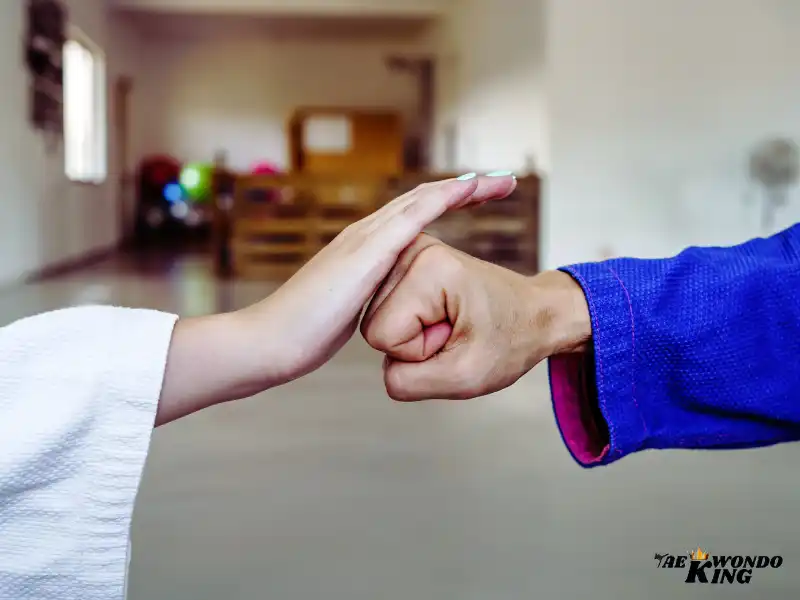
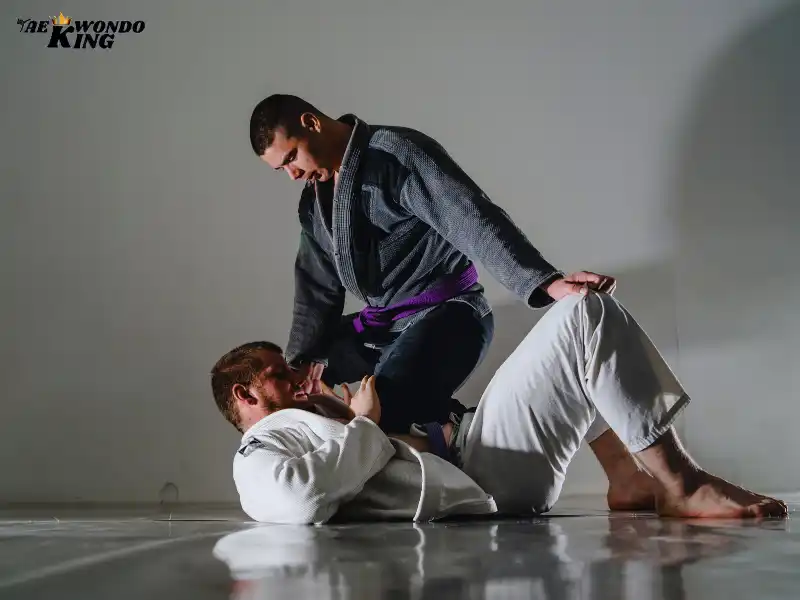
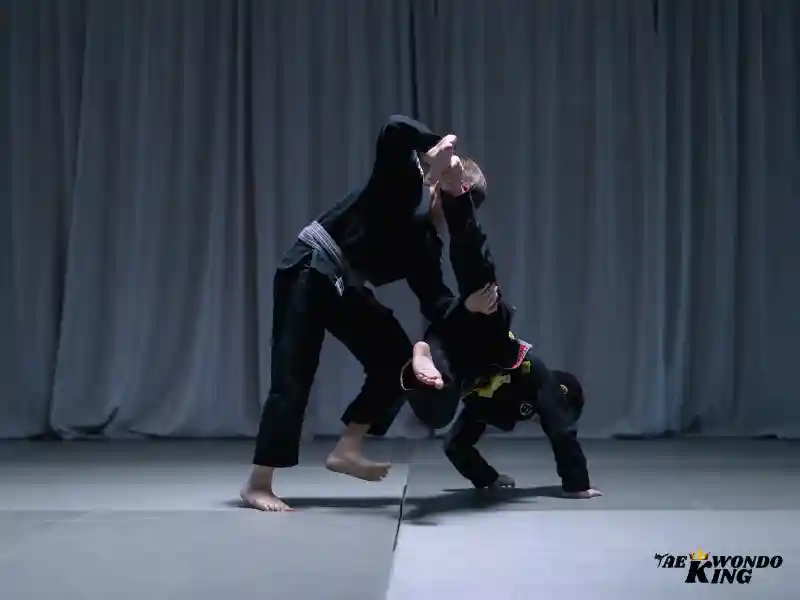
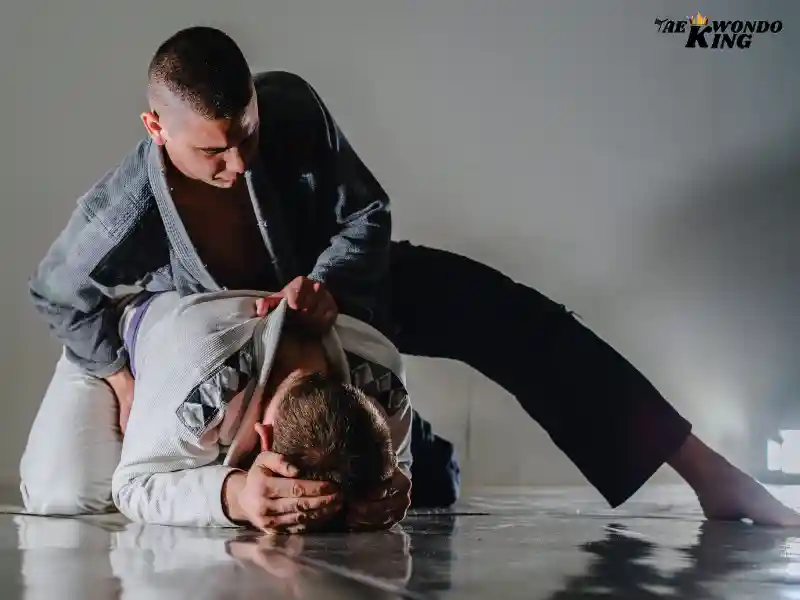
I simply could not depart your site prior to suggesting that I actually loved the usual information a person provide on your visitors? Is gonna be back frequently in order to inspect new posts.
Great blog here! Additionally your site rather a lot up fast! What host are you the usage of? Can I get your affiliate link for your host? I desire my site loaded up as quickly as yours lol
Thanks for sharing. I read many of your blog posts, cool, your blog is very good.
Thank you for your sharing. I am worried that I lack creative ideas. It is your article that makes me full of hope. Thank you. But, I have a question, can you help me?
Is bjj useful in self-defense?